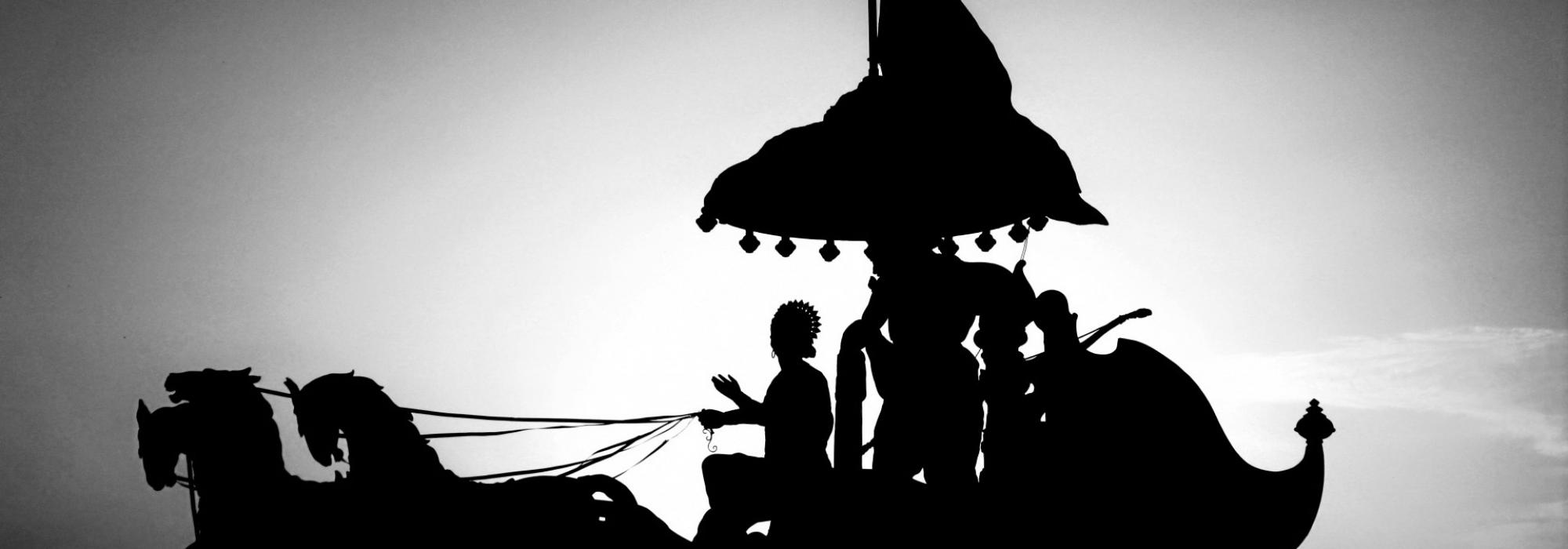किमस्थिमालां किमु कौस्तुभं वा
परिष्क्रियायां बहुमन्यसे त्वम् ।
किं कालकूटः किमु वा यशोदा-
स्तन्यं तव स्वादु वद प्रभो मे ॥
Among the poets who flourished in Andhra Pradesh during the thirteenth century, kavibrahma Tikkana Somayaji is perhaps the most famous. Not only was he a great poet in Telugu, he was also a great scholar of Sanskrit. He composed the Telugu version of the Mahabharata. Unfortunately, he could not complete the work; he only composed fifteen parvans.
During his time, the society was consumed by hatred. Rivalry between groups like shaiva, vaishnava and shakta was at an all-time high, and there were internal fights between individual groups. The situation called for advaita in practice. Tikkana took up this job. He wanted to translate Mahabharata into Telugu and dedicate it to Harihara swami – the deity that stood for the non-duality between Shiva and Vishnu – to preach this message.
At a time before this conviction was strong in him, he was disturbed by the bad socio-political state of the society, which was further worsened by religious fights. One day, when he was fast asleep, he had a dream. His father and the deity Harihara appeared and asked him to translate Mahabharata – to establish harmony in the society. Tikkana Somayaji agreed and composed poems. These details are found in the introductory portion of the Virata parvan of the Telugu Mahabharata.
In the present verse, the poet questions the deity Harihara:
Garland of skulls or the lustrous kaustubha gem –
Which do you prefer as an ornament? Tell me, O god
Which do you like better? Kalakuta poison, or
The sweet breast-milk of Yashoda?
Invoking the stories of both Shiva and Krishna, the poet has questioned his deity’s preferences in this verse, and thereby telling us that there is only one God. This all-inclusive mindset was the hallmark of ancient Indian poets.
Translated from Kannada by Shashi Kiran B. N.
(The original article is from the anthology Kavitegondu Kathe.)














































Comments